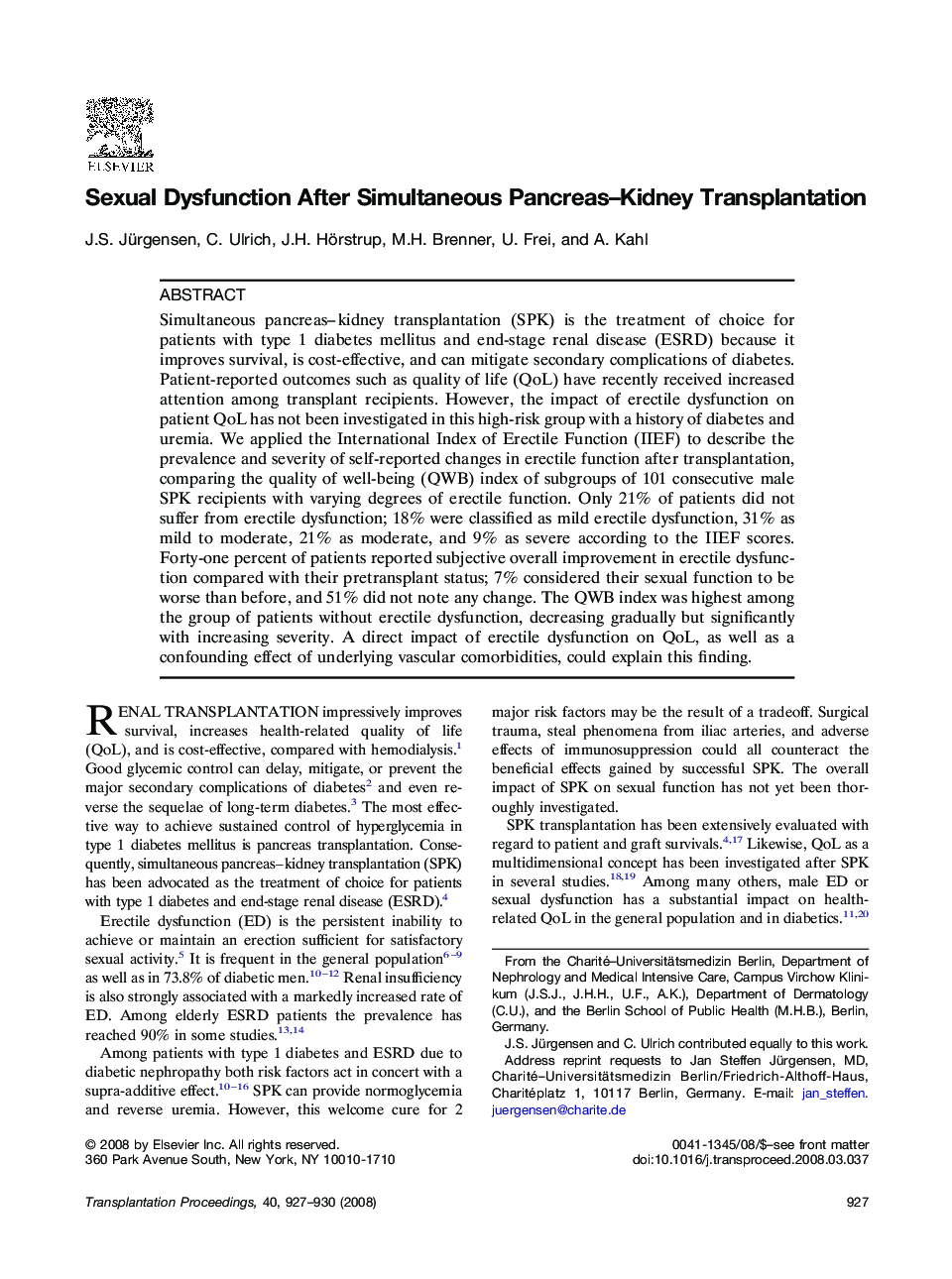| Article ID | Journal | Published Year | Pages | File Type |
|---|---|---|---|---|
| 4262073 | Transplantation Proceedings | 2008 | 4 Pages |
Simultaneous pancreas–kidney transplantation (SPK) is the treatment of choice for patients with type 1 diabetes mellitus and end-stage renal disease (ESRD) because it improves survival, is cost-effective, and can mitigate secondary complications of diabetes. Patient-reported outcomes such as quality of life (QoL) have recently received increased attention among transplant recipients. However, the impact of erectile dysfunction on patient QoL has not been investigated in this high-risk group with a history of diabetes and uremia. We applied the International Index of Erectile Function (IIEF) to describe the prevalence and severity of self-reported changes in erectile function after transplantation, comparing the quality of well-being (QWB) index of subgroups of 101 consecutive male SPK recipients with varying degrees of erectile function. Only 21% of patients did not suffer from erectile dysfunction; 18% were classified as mild erectile dysfunction, 31% as mild to moderate, 21% as moderate, and 9% as severe according to the IIEF scores. Forty-one percent of patients reported subjective overall improvement in erectile dysfunction compared with their pretransplant status; 7% considered their sexual function to be worse than before, and 51% did not note any change. The QWB index was highest among the group of patients without erectile dysfunction, decreasing gradually but significantly with increasing severity. A direct impact of erectile dysfunction on QoL, as well as a confounding effect of underlying vascular comorbidities, could explain this finding.
